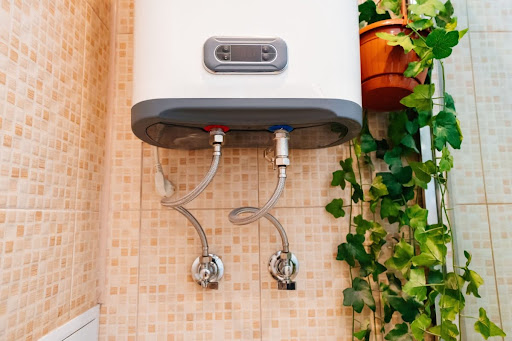
The Pros and Cons of Electric vs. Gas Water Heaters
Choosing a new water heater for your home involves balancing energy needs, cost considerations, and preferences for environmental impact. With both gas and electric water heaters on the market, it can be difficult to decide as each model carries unique benefits and drawbacks. Being armed with all of the right information is a critical first step, so Reynolds Electric and Plumbing is here to share everything you need to know.
As a locally-owned business, we know what homeowners in Eugene, OR, are looking for when it comes to their water heaters. That’s why we’re shedding light on the different types so you can feel confident in your decision when it’s time for a water heater upgrade. Give us a call to schedule an appointment for water heater replacement, water heater repair, or anything in between.
How Each Type of Water Heater Works
Both electric and gas water heaters perform the same essential function — supplying hot water for daily use. However, they rely on different energy sources to do so effectively.
Electric Water Heaters
An electric water heater utilizes heating elements powered directly through your home’s electrical system. These elements, typically made of resistant metal, heat the water inside the tank. Most electric water heater models feature two heating elements — one near the top and another near the bottom. Their simple design allows them to heat water consistently throughout the day.
Gas Water Heaters
On the flip side, a gas water heater operates using natural gas or propane as fuel. Their heating process starts with a gas line feeding into a burner beneath the tank. Inside, a pilot light ignites the burner when heating cycles begin. The resulting flame heats the water tank from below, while exhaust gasses exit through a chimney-like vent.
Benefits of Electric Water Heaters
Modern electric water heaters represent a smart choice for today’s homeowner, combining safety, simplicity, and efficiency in one reliable package. Without the risks of gas leaks or carbon monoxide, these units offer peace of mind while their straightforward installation — free from the constraints of gas lines and venting systems — allows for flexible placement throughout the home.
The latest models, particularly those featuring heat pump technology, deliver impressive energy efficiency that can translate to lower utility bills in regions with competitive electricity rates. Their streamlined design means fewer maintenance headaches and a longer lifespan, while the growing integration of renewable energy into the power grid makes electric water heaters an increasingly eco-conscious choice for sustainability-minded consumers.
Benefits of Gas Water Heaters
Gas water heaters stand out as a powerful and cost-effective solution for home water heating needs. They heat water more quickly than their electric counterparts and maintain consistent performance even during power outages, making them exceptionally reliable in emergency situations. In most regions, natural gas costs significantly less than electricity, resulting in notably lower monthly operating expenses for homeowners.
Gas water heaters also demonstrate impressive recovery rates, meaning they can quickly heat new water after depletion — a particularly valuable feature for large households with high hot water demands. The latest models achieve remarkable efficiency ratings while producing hot water on demand.
Potential Drawbacks of Electric & Gas Heaters
Each type of water heater comes with its own set of challenges. Electric heaters, for instance, can lead to higher costs in regions where electricity rates are steep. The process of heating water in these systems also tends to be slower, which can be noticeable in homes where hot water is needed by multiple people at the same time. This delay may become inconvenient, especially in larger households or during peak usage times.
Gas water heaters, while offering faster heating, often involve a more complex installation process. Homes without an existing gas line or proper ventilation can also face higher upfront expenses to accommodate these systems. In terms of safety, there is the risk of gas leaks, which can cause serious harm. Regular upkeep and timely repair are a must in reducing the threat of leaks. Additionally, the need for venting can limit the available locations within your home where a gas water heater can be correctly and securely installed.
These factors make choosing between the two types of heaters an important decision that extends beyond just operating costs.
The Importance of Professional Water Heater Services
Installing a water heater, whether electric or gas, requires precision. Electric heaters need a proper electrical connection, while gas water heaters must be connected safely to your gas line and vented to manage exhaust gasses. Professional installation reduces the risk of future issues and extends the lifespan of your heater.
Regular maintenance also plays a crucial role. Gas water heaters, for example, need periodic checks to prevent gas leaks and ensure safe venting. Electric water heaters benefit from inspections of the heating elements to catch any wear that could impact energy efficiency. If repairs become necessary, it’s always best to rely on a licensed professional who can assess and fix any problems quickly and safely.
Call for More Expert Water Heater Advice & Service Today
Navigating the choice between electric water heaters and gas water heaters can seem overwhelming, but Reynolds Electric and Plumbing is here to simplify the process. Our expert team can assess your home’s needs, help determine the best option, and handle every step of installation, maintenance, and repair. Reach out to our electric and gas water heater pros today!
